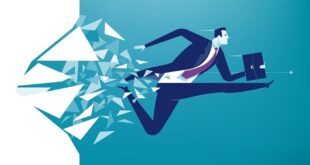The attributes that are defined as soft skills are those ones that are interpersonal skills, behaviors, and personality traits that are used on an almost daily basis to interact with the people around us.
In a place of work, they provide us with the ability to be able to work harmoniously and effectively with our colleagues. This is why they are an important set of skills that employers regard very highly. However though, all too often these skills are missing from applicants vying for jobs. This is why it is important for job candidates to work on their soft skills and one way of doing that would be for them to visit.
In most instances, soft skills are not tied to say a specific industry or job, rather they relate more to what our personalities are like, and so, are skills that are very transferable. Whilst they are much less tangible than what hard skills, like being able to code or speak a foreign language, are, they can nonetheless still be learnt and even developed. Employers are always on the look out for qualifications and signs that candidates are continually improving themselves.
Examples of the types of soft skills that are important for employers include things like critical thinking, collaboration, emotional intelligence, communication, adaptability, and even creativity.
Critical thinking

This is the ability of being able to both reason and then analyze details in a way that is highly effective. It involves taking problems and / or information, and then processing it in a highly logical way in order to extract the value and come up with a solution. Critical thinking is a soft skill that is highly sought after by employers due to the fact that it works well with many other types of soft skills. For instance, having good critical thinking skills improves things like time management due to being able to solve things that much quicker.
In order to improve one’s critical thinking skills, they must thoroughly consider all possible variables when presented with information, data sets, statistics, etc. This can be achieved by asking questions and exploring motivations on both sides.
Collaboration

Also known as teamwork, collaboration is having the ability to effectively work with others in a variety of formats and environments. It engulfs and requires several other key soft skills, including communication, adaptability, and emotional intelligence. By working collaboratively, it means that a person is able to problem solve quicker and to understand their own personal weaknesses and strengths that much better.
In order to become a more collaborative worker, a certain level of self analysis is required. Thinking about skills and where they are best suited within a team are helpful in achieving this.
Emotional intelligence

Having emotional intelligence is the ability to both fully control and understand one’s own emotions, and at the very same time, empathic and recognise other people’s emotions. Possessing this soft skill within the workplace is something that is very much sought after by many employers. Harnessing one’s own emotions whilst being able to understand those of our colleagues will result in productive and harmonious relationships being made. In those workplaces that are particularly high pressure, emotional intelligence is a soft skill that is much needed. This is because it is important to stay calm in certain situations, such as negotiations, or when there is a need to understand the position of the other side.
Although it may seem difficult, emotional intelligence is in fact something that can be learned. Think about certain situations within the workplace where emotions can work against an individual and how better control of them would have helped to improve the situation.
Communication

Being able to communicate effectively within the workplace enables an individual to converse with colleagues in a way that is beneficial to the employer. Conversing with people in a way that is both polite and clear, whilst also being able to listen carefully to colleagues and / or customers will provide for much more productive outcomes and results. Successful forms of communication include written, nonverbal, and verbal skills, coupled with active listening skills also.
Learning how to become a better communicator is important for any professional. Try to do this by focusing on doing things like simplifying messaging or checking body language. When listening, it is important to be fully engaged at all times.
Adaptability

Sometimes also referred to as being flexible, adaptability is being able to quickly embrace challenges and changes in a way that is resourceful and positive. In any workplace, unexpected issues will come up, but by having a good level of adaptability, these can be approached in a calm manner in order to find appropriate solutions faster than if a person was not as adaptable. With modern workplaces constantly changing, being resilient to this and being able to adopt a more positive attitude when obstacles arise is an asset that is highly attractive to employers.
Learning how to be more persistent, curious, and resourceful are all things that can be learnt but do take a certain level of practice. One way of doing this is by looking at colleagues who are viewed as being adaptable and then replicate what it is that they are doing.
Creativity

Within the workplace, creativity is the most important soft skill of all to have. However, being creative is not solely relevant in the design or artistic industries, it can be helpful in all aspects of professional life. Being creative is actually about being able to think in a way that is creative in order to find solutions to problems that are completely innovative. With more and more of the repetitive types of jobs being automated by machines, it is creative employees that will become highly valued assets in the years to come as they cannot be simply replaced.
In order to improve one’s creativity, try approaching work in a less orthodox fashion. This can be achieved by having an open mind when challenged with ideas as opposed to shooting them down right away.
 Imagup General Magazine 2024
Imagup General Magazine 2024



